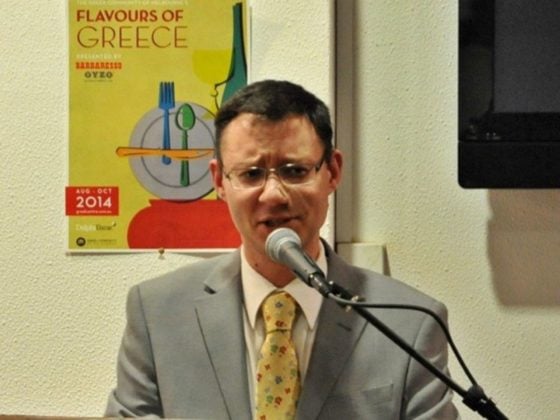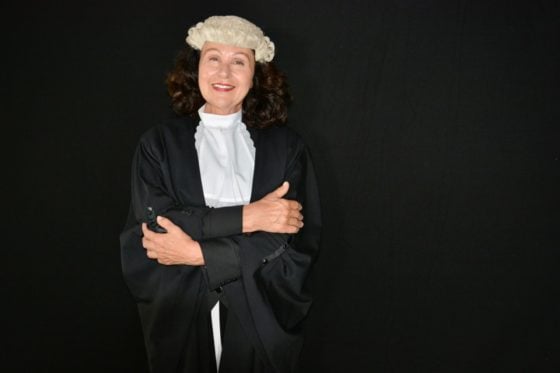The advent of COVID-19 has heightened the risks of elder abuse in Australia with increased isolation and changes in family dynamics that have led to the vulnerable placing a greater dependency on family members for emotional and physical support. Sometimes this increased dependency has also made them vulnerable to abuse by people they trust.
The problems for the elderly within the Greek community are often exacerbated by language and cultural differences when their affairs are brought before tribunals, ordered to participate in mediation or the courts that seek to determine their competence to handle their financial affairs when these are questioned by family members or guardians appointed to run their affairs for them.
While there are a number of welfare organisations that have been created to safeguard the welfare of the elderly in the Greek community, there is a call among some for a more nuanced legal approach to the handling of elder abuse cases before the law courts and tribunals (such as the Victorian Civil and Administrative Tribunal or VCAT) through the creation of an office dedicated to Greek community advocacy. Such an office would ensure the appointment of “culturally appropriate guardians to those members of our community who need them”.
The call for the creation of such an office came from Dean Kalimniou in a column that he wrote for Neos Kosmos on 5 May. Mr Kalimniou is a lawyer who was also the 2007 recipient of the Government of Victoria Award for Excellence in Multicultural Affairs.
READ MORE: The general nature of Australian wills – Keep it in family bloodline

His call to look into the setting of such an office has been supported by barrister Paul Kounnas and neuropsychologist Matt Staios who has long stated that the tests applied to determine the mental capacity of elderly Greeks were often inappropriate and culturally insensitive.
Mr Kounnas told Neos Kosmos that while a multi-discipline medical and legal resource service to help the elderly could be expensive, there was also a lack of advocacy for older Greeks when it came to matters where courts and tribunals decided issues of guardianship or the appointment of trustees for the elderly or persons with disabilities.
“There is evidence of abuse in the use of intervention orders in the family-dispute system. Family members will often use an intervention order which makes it difficult for the elderly Greeks who do not understand the system.
“Well-meaning institutions like hospitals and nursing homes will make assessments to take a matter (relating to the competence of an elderly Greek person, for example) to court and that will make for a one-sided legal battle where the person has to contend against the resources of a large organisation, its lawyers and experts. Who among the vulnerable can afford to counter such resources?” Mr Kounnas asked.
“Organisations like PRONIA and Fronditha are mainly welfare organisations that do help a lot of people. We do not want to replicate services that are already there for the community, we just want to cater for a gap in the system and help protect people in need.
“There may be cases that require a report from a neuropsychologist and other experts. How do I send a solicitor to a neuropsychologist who does not understand the circumstances affecting the client or who can offer alternative solutions to what is being advocated by an institution like a hospital?”
READ MORE: Women migrants most vulnerable but at the “forefront of integration”
He said the problem lay in understanding the workings of bureaucracy.
“Little is known of the decision-making process. Making people more aware will add value. A little advocacy before the courts could go a long way.
Mr Kounnas cited a case where a doctor in a hospital had taken issue with an elderly Greek man who was looking after a disabled child.
The hospital proposed palliative care for the child that did not really suit his Greek guardian, Mr Kounnas said. He called on medical professionals who understood his circumstances and was able to work out an acceptable plan without going through the court system.
“It was lucky that he knew lawyers and doctors without his needing to spend a lot of money,” Mr Kounnas said.
Fronditha Care’s CEO Faye Spiteri-Tsolakis told Neos Kosmos that “sadly there were instances when elderly members of our community are abused, left homeless and experience major barriers accessing government services and other opportunities to participate in community and public life.”
He said the organisation was a passionate voice of Greek and other diverse communities.
“We continue to lobby for policy and social change across the aged care sector. … In this regard we work with existing Government departments and agencies to deliver long-term social change,” Mr Kripotos said.
PRONIA’s CEO CEOs, Tina Douvos-Stathopoulos said that in its 50 years the organisation had constantly recognised the effect of language difference and cultural competency in service provision.
“These are things that we advocate to various stakeholders, to various organisations, to mainstream organisations, to the government, through policy and submissions,” Ms Douvos-Stathopoulos said.
READ MORE: Measures to deal with financial abuse within families offer tough choices
“The experiences of language barriers and access to services are clearly issues that impact our community. Just to name a few: Lack of knowledge about the availability of service providers, or lack of trust in the services which are available; lack of awareness and sensitivity to the needs of diverse cultures and ethnic communities amongst service providers; accessing interpreter services and translated information material; lack of funding and services for legal representation.”
“We don’t necessarily believe in creating new structures to deliver better services. If there is a gap in the service provision to meet the needs of a client in a particular setting than we advocate for them to do it better for our clients.
“The proposal for forming a committee is a complex one as a committee is more than service provision. There are legal and other implications which have to be thought through and it doesn’t necessarily mean that setting up a committee is a way forward,” Ms Douvos-Stathopoulos said.

On the other hand, barrister Pat Karnis said that the formation of an advocacy group would be beneficial and could assist in mediation cases as well as litigation cases that went before the courts.
“The reality is that many Greeks do not sort out their affairs in time and leave it to their children to deal with the estates. This often leads to disputes within families where trustees may have to be brought in to settle matters,” she said.
“The truth is that this would not become an issue if the parents had properly taken charge of their own affairs but avoid doing so for fear of being accused of being unfair by their children and this is where an advocacy group could step in.”
She added such a group could also provide relevant information on estate planning.
“Often the (Greek) elderly make choices that don’t play out well legally. Often their children do not try to persuade the parents but instead pressure and intimidate them in an effort to control their parents’ financial affairs.”